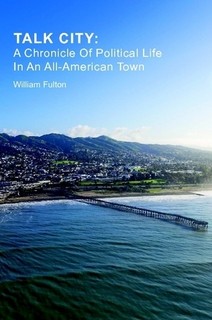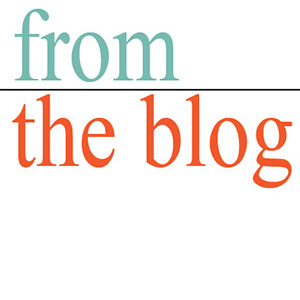Having written multiple books about urban planning and published the California Planning & Development Report for decades, CP&DR publisher Bill Fulton crossed over into local politics when he ran for Ventura City Council in 2003. That election led to an eight-year career in elected office, including vice-mayor and eventually mayor of Ventura. At the same time that Bill was serving in the city council, “Web 2.0” arose, giving anyone with an internet connection the chance to publish in real time. Fulton seized that opportunity by writing a blog – still live at fulton4ventura.blogspot.com – to chronicle his political career on a daily and weekly basis.
Bill has complied a selection of these blog posts for his sixth book on urban planning and politics, Talk City: A Chronicle of Political Life in an All-American Town. It offers an intimate look at what local politics in California entails, and it offers an important real-life counterpoint to the theorizing and third-person reportage that comprise much of his other writing. Fulton and CP&DR contributing editor Josh Stephens recently chatted about the book, Bill’s time in Ventura, and the relationship between writing and governing.
You were in Ventura for a long time, as a private citizen and then as councilmember and mayor. What did you learn about your tenure in retrospect?
I think the thing I learned more than anything else is how intense public life is. For eight years I was a member of the City Council, deputy major, and mayor. Simultaneously, I had a full-time job. I was at Solimar Research Group in the beginning and DC&E (now part of Placeworks) at the end, and we merged in the middle of that.
It made me realize that there is no letup when you are in public office. It's a 24/7 job, particularly in a smaller California city where you have to have a job even though you’re an elected official.
It was stressful and rewarding. But the constant nature of it, the fact that you’re always on is what really struck me.
I was amazed at how much I’d written. I had about 140 blog entries, and I cut it down to about 60. That was just in the last five years I was in office. Some of the entries are quite short, but some were 2,500 words and they were carefully constructed arguments about this or that.
I can’t imagine having the time or the intellectual or emotional energy, but I did it. Rick Cole was our city manager the whole time, and he had been on the Pasadena City Council. He said that his approach was one Sunday a month he would collapse and not get out of bed. The rest of the time, you’re just going.
What were the big planning issues that you tackled? How did you feel about the outcomes in retrospect?
The thing that really strikes me was how long it took to turn things around even though everybody recognized things needed to be turned around.
 Before I started writing the blog, we revised the general plan. That took a lot longer than anybody thought. That was 2005. Then it look a long time to revise all the codes and get it in everybody’s head that we had a new way of doing things, that was more smart growth-oriented.
Before I started writing the blog, we revised the general plan. That took a lot longer than anybody thought. That was 2005. Then it look a long time to revise all the codes and get it in everybody’s head that we had a new way of doing things, that was more smart growth-oriented.
The most frustrating thing was to approve 600 or 800 units of housing in downtown Ventura under a very good plan and zoning ordinance and then see virtually none of it got built as a result of the real estate crash in 2008-10. Many of the projects that we considered and approved are either just now getting built, or some version of them is getting built.
One of the most controversial things we were involved with was putting in paid parking in Downtown Ventura. On Monday night the rhetoric was “oh, you’re just trying to squeeze customers….” Then I wrote one blog about how, on 10:30 a.m. the day we implemented the policy, walking around downtown Ventura was a testament to Don Shoup. It was as if a bunch of parking valets had moved the cars off the streets and into the parking lots. Writing about that was a way to time show in real time, particularly on the planning issues, how we were changing and hopefully improving the community.
What was it like going from someone covering and writing about these issues to actually being in the thick of it. How did this book help you reflect on that?
Once I got in office I was amazed at how much I didn’t know. I thought I knew everything about local government and I thought I knew everything about planning. Everyone on staff had read my book (Guide to California Planning), along with all the planning commissioners.
The mechanics of getting things done, particularly politically, are much trickier than I thought. It’s not just matter of changing policy, having the projects come in, and then approving the projects. There are still issues, and still a lot of resistance. There's still a lot of thrashing around on the part of the council members who aren’t used to the new way of doing things.
Having written about this stuff in California for 35 years now, I really have shifted from being somebody who watches and writes to somebody who wants to get things done. The most rewarding part of my job as planning director in San Diego we really got a lot of stuff done in a short period of time. My current job (as executive director of the Kinder Institute at Rice University) is back more toward researching, writing, and framing. That’s not as much fun to me now as when I’m out in Houston, particularly after Hurricane Harvey, working with people on how to change policy and getting my hands dirty to try to create a more resilient city.
The shift from being a writer, a researcher, a watcher to being to a doer was a permanent shift in who I am and how I approach planning.
What are issues in Ventura that other planners and public officials are grappling with? What insight might they gain from reading this book?
I think this book will resonate with a lot of planners who understand what it's like to be in the public eye.
I think what planners and planning-oriented elected officials will relate to is really how much harder it is to accomplish things than it looks like from the audience. I’ve always said: Ultimately, planning is politics. That’s been a theme of my whole writing career. Planning is whatever gets three votes on a Monday night or a Tuesday morning. You're not going to wind up with an ideal outcome. But planners have to understand the political process and how to make sure the political process yields good planning results.
That's hard, because there's a lot of people who want something else. They don't want development at all, or they might want to ram through something that’s not good. The other thing they might want is a compromise that looks good that doesn’t accomplish anything. All of those outcomes are very common.
Was the blog a chance to express yourself to your constituents, or a chance for you to puzzle through the political and policy issues that you were dealing with?
I never intended this to be for a wider audience. As I wrote in the introduction, there was very little time and emotional space on Monday nights to explain why I was doing what I was doing. I started this blog as a way to wake up Tuesday morning and explain, with some thought, why I had done what I had done the night before so that my constituents could understand it.
At its best, the blog became kind of a dialog between me and constituents to puzzle through policy and planning questions. A lot non-planning issues that came up too, especially during the recession. When the (City of) Bell scandal hit, there was a lot of stuff that raised questions about every local elected official.
I spent a lot more time writing and thinking and working through for my constituents why I operate the way I do in much more detail than I ever imagined I would have to. A lot of it was being able to frame issues in a thoughtful way.
The number of politicians who write in their own voice is you, Barack Obama, and Winston Churchill – and not many others. What can and should be the relationship between elected officials and the written word?
Particularly as you get further up the food chain, there is a worry that any word you have ever written can get thrown back at you, in an “opposition research” kind of way. When I was in San Diego and I had a lot of issues with people who didn’t want dense development near transit in their neighborhoods, I got the “cocoon citizenship” concept from The Reluctant Metropolis thrown back in my face every day for about six months.
As a local elected official in a midsize city, where most people know you and know who you are, I think you have a little more leeway to be candid in the way you write and use that to initiate a conversation with your constituents. I knew they were going to run into me at the farmers market and they could confront me about that if they wanted to. I also knew there wasn’t a giant opposition research machine tracking everything I said. That gave me a lot more flexibility than if I was, say, a county supervisor and certainly if I was in the legislature.
And your voice was already out there in the first place…
But my writing was not especially well known for my constituents. The readers for my writing and policy analysis are planning directors, planning commissioners, a more specialized audience. The readership for the blog was not quite the Average Joe, because the Average Joe probably isn’t going to read 2,000 words on pensions. In the blog, I was introducing that voice to readers who were already accustomed to my style and had heard me talk. They knew I’d written books but weren’t familiar with them. That actually helped me cultivate that voice and bring that voice to this blog helped me, I think, politically over time.
What is the relevance for a national readership? Is this a glimpse into Anytown, USA?
I did a book event in Houston recently. A local planning director, who is also on her city council, came, and she just nodded along and smiled the whole time. The thing that really strikes me is how similar political dynamics are over geography and over time, throughout history. Many of the issues you deal with are the same. The kinds of constituencies you confront are the same.
The specific details of the war stories in Ventura are probably not of great interest to someone who wasn’t there. But the overall dynamics of how you get things done and what kinds of pressures you feel I think are pretty common for elected officials all over the country.
This interview has been condensed and edited for clarity.



